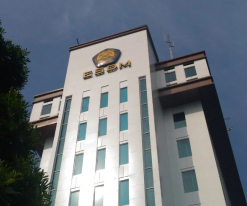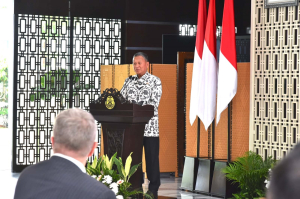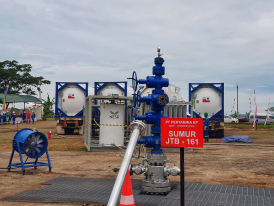Surabaya chosen as pilot city for Indonesia-Germany sustainable energy project
The Ministry of Energy and Mineral Resources (ESDM) has revealed that Surabaya City, East Java is a pilot area for the Sustainable Energy Transition in Indonesia (SETI) project, which is a collaboration with the German Government.
SETI is a collaborative project between the German and Indonesian Governments through funding from the German Federal Ministry for Economic Affairs and Climate Action. Through this collaboration, it is hoped that it can help form an effective institutional, regulatory and financial ecosystem.
"We have conducted a survey and formed criteria to determine which cities will be the pilot project. Surabaya and Batam were chosen," Director of New and Renewable Energy at the Ministry of ESDM, Andriah Feby Misbakhun, said on Wednesday, April 16, 2025.
The collaborative project which will last for five years until 2028 has four outputs, namely the first is a sustainable energy transition policy and is realized through several activities in the form of studies, capacity building, and socialization in preparing various policies.
The second output is sustainable energy transition funding, namely bringing up incentive options and energy transition innovations including bringing together funding institutions and business actors.
The third output is the implementation of energy transition in the iron and steel, textile, pulp and paper industries, and industrial areas such as Surabaya Industrial Estate Rungkut (SIER).
The fourth output is energy transition in urban areas with a focus on utilizing existing clean energy sources to support activities in buildings and implementing energy efficiency in the building sector.
Andriah said that the implementation of the SETI project is in line with President Prabowo's mandate which emphasizes two main things related to the energy sector, namely energy security and management of natural resources (SDA) to support development and people's welfare.
"Energy independence and self-sufficiency are very important to support sustainable national development but must be supported by resources and implementation in the regions," she said.
The implementation of the SETI project also supports the commitment of the Indonesian Government through the 2021 Nationally Determined Contribution (NDC), namely reducing greenhouse gas emissions by 31.9 percent with its own efforts and 43.2 percent in 2030 with international assistance.
Andriah cited that the energy sector is one of the largest contributors in achieving the target so that the energy sector is targeted to reduce around 358 million tons of CO2 in 2030 with its own efforts and 446 million tons of CO2 with international support.
"And we have prepared several strategies where the two main strategies are the implementation of renewable energy and energy efficiency efforts," she said.
Already have an account? Sign In
-
Start reading
Freemium
-
Monthly Subscription
30% OFF$26.03
$37.19/MonthCancel anytime
This offer is open to all new subscribers!
Subscribe now -
Yearly Subscription
33% OFF$228.13
$340.5/YearCancel anytime
This offer is open to all new subscribers!
Subscribe now






